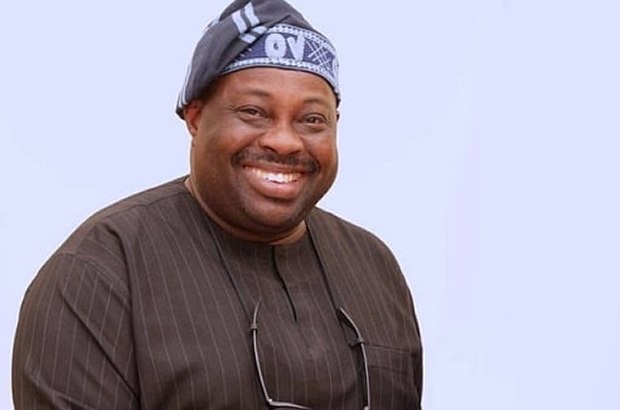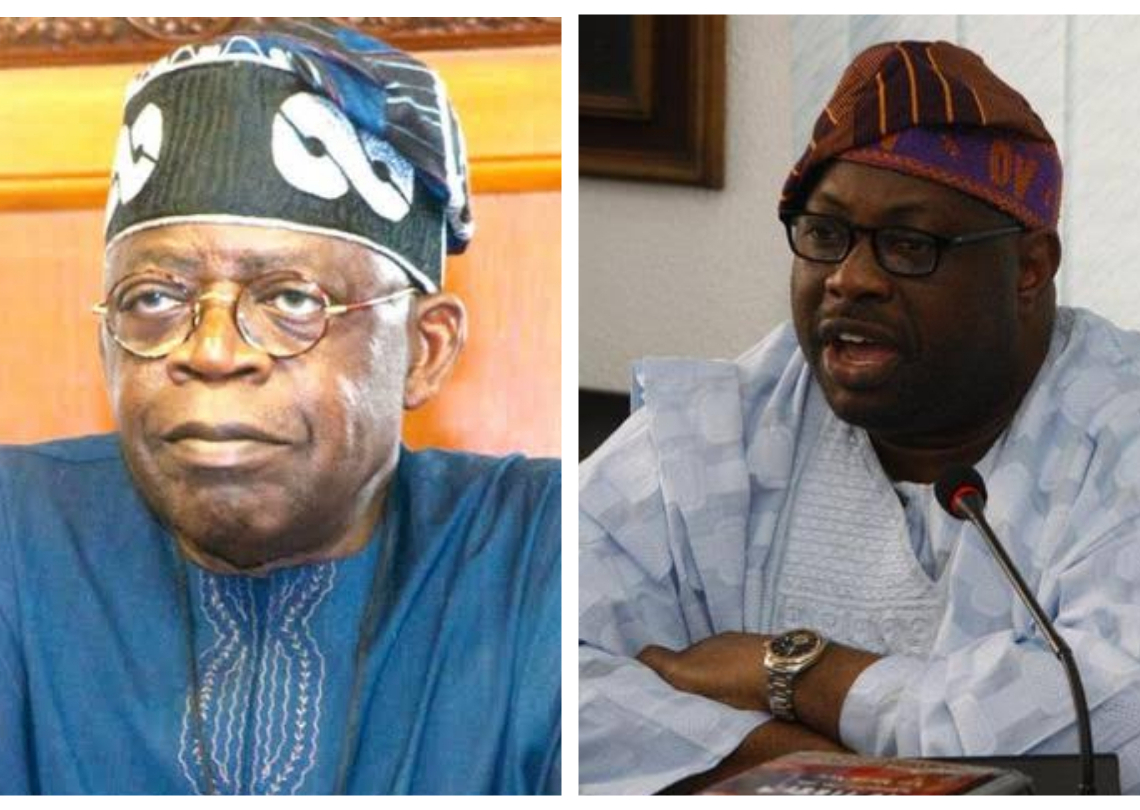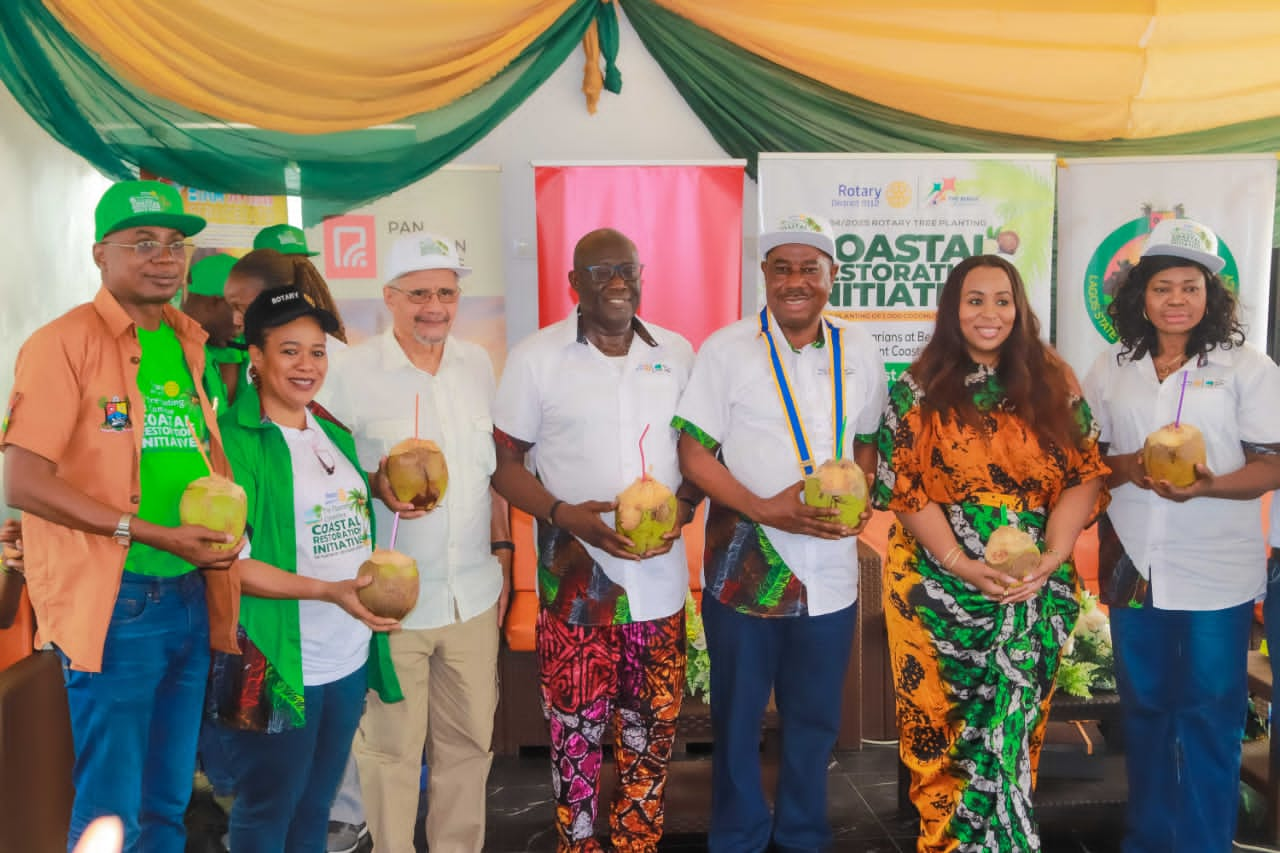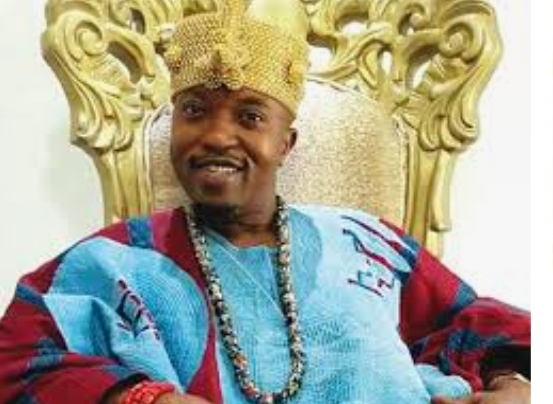In a bid to promote its mission of improving the environment, Rotary International District 9112 on Sunday kicked off an environment-saving intervention tagged: Coastal Restoration Initiative at Westside Beach, Okun, Ajah, Lagos, where 1000 coconut trees were planted along the coastal shores of the Atlantic Ocean.
Speaking at the event, the Governor of Rotary International, District 9112 Rotarian Femi Adenekan, said the “initiative is conceived to save the environment as well as reduce the adverse effect of the climate change.”
According to him, “the environment is one of the main focus areas of Rotary International. We need to consciously come to the realization that we need to save our environment. We need to save ourselves. So that in the future, those that will come after us will have life.”
“People assume that the world belongs to them. They have forgotten that they are just tenants on the surface of the earth. If you try to change nature, nature will react, which is the reason we are having a lot of environmental damage in the world. Some of wrong human activities, such as throwing plastics and other items into water or where it ought not to be is causing us environmental challenges. If we don’t take care of our environment, the environment will react and take us out of the surface of the earth,” He said.

The chairman of the District 9112 Tree Planting Committee, Rtn. Gboyega Bada recommended the adoption of an “Every Rotarian Plant a Tree Every Year” policy and also indicated plans for Rotary International District 9112 to propose a Private Bill to the Lagos State House of Assembly to enable all Lagos Residents plant a tree every year for the next five years to address the challenges of climate change.
Rtn Bada stated that the vision of Rotary District 9112 on Tree Planting is to achieve a safer and cleaner environment by planting 10,000 seedlings of Coconut, Mango, Breadfruit, Avocado and other ralated crops that have economic, health and environmental benefits.
The event was well attended by Stakeholders in the Private and Public Sectors. Pan African Towers Ltd, Tolaram Group, Azeez Amida Foundation, Telenoetica Ltd, amongst others were well represented. Past District Governor Tunji Funsho led other Rotary Leaders to give their support. The DG’s wife Rtn Tayo Adenekan, the District Governor elect Rtn Lanre Adedoyin, General Manager of Lagos State Coconut Development Authority, Dapo Olakulehim and Lagos State Parks and Gardens Agency, Club Presidents and Rotarians from the 73 Clubs graced the occasion.
Also speaking at the event, one of the Guest Speakers, the world acclaimed horticulturist, Mr. Andrew Vale of Tolaram Group and The Lagos Free Zone, highlighted the importance of trees, saying; “planting trees improves air quality, reduces air pollution, and illnesses from air pollution. More so, plants produce oxygen and provide shelter, medicine, and many more.”
In his own special remarks, Chairman, LUFASI Park and DG Coconut Naija, Dr. Desmond Majekodunmi, said; “the basic fact about the environment is that whatever you sow, you shall reap. The environment will always treat you, the way you treat it.”
It is of note that the vision of District 9112 on tree planting for this year is to achieve a safer and cleaner environment through the planting of 10,000 seedlings of coconut, mango, breadfruit, avocado and other related crops that have economic, health and environmental benefits.
The event was witnessed and supported by main stakeholders in the industry, agencies and partners which included, Mr Dapo Olakulehin, General Manager, Lagos State Coconut Development Authority (LASCODA), Mr Andrew Vale of Tolaram Group, Channel Scott from Pan African Towers, Azeez Amida Foundation, Telenoetica, The Legend Lifeskills Foundation, Etam Avitat, Lagos State Parks and Gardens Agency (LASPARK) , presidents and members of various Rotary Clubs in District 9112 amongst others.
Rotary leaders who witnessed the event are PDG Tunji Funsho, PDG Kamoru Omotosho, PDG Omotunde Lawson among others.


 News6 years ago
News6 years ago
 Featured6 years ago
Featured6 years ago
 Boss Picks6 years ago
Boss Picks6 years ago
 Headline6 years ago
Headline6 years ago
 Headline6 years ago
Headline6 years ago
 Headline6 years ago
Headline6 years ago
 Headline6 years ago
Headline6 years ago
 Headline6 years ago
Headline6 years ago













